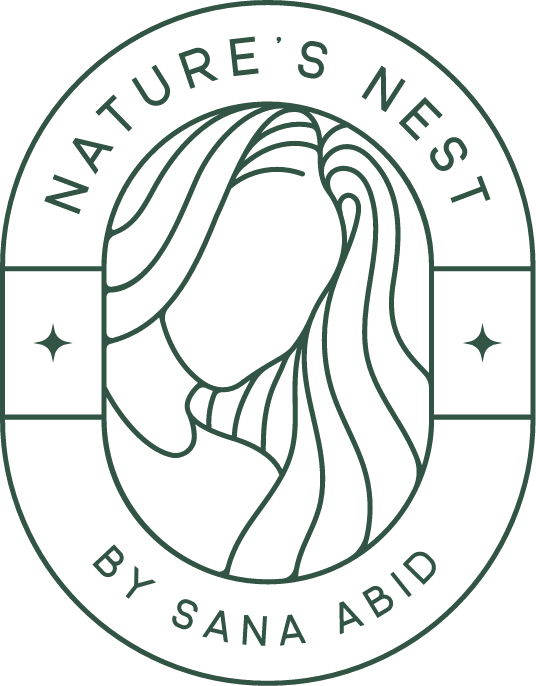
Can Hair Serums Help with Postpartum Hair Fall? A Complete Guide
Share
Postpartum Hair Fall – A Common Yet Stressful Phase
If you’re a new mom in Pakistan, hair fall after pregnancy can feel alarming. One day your hair is thick and shiny. A few months later, you find strands everywhere — on your pillow, clothes, and bathroom floor.
You’re not alone. Most women notice increased shedding around three to four months after childbirth. The main reason? Hormonal changes. During pregnancy, high estrogen levels keep hair in a growth phase. After delivery, estrogen drops sharply. This sudden shift pushes more hair into the shedding phase.
While this is a normal part of recovery, it can still affect confidence. Many moms start looking for ways to slow the fall and support regrowth. That’s where hair serums come in — but do they actually help?
Why Does Hair Fall Increase After Childbirth?
Postpartum hair shedding is one of the most common changes new moms notice. It can feel sudden and worrying, but there’s a clear reason behind it.
During pregnancy, high estrogen levels keep hair in the growth phase longer. After delivery, estrogen levels drop quickly. This hormonal shift triggers telogen effluvium — a temporary phase where more hair than usual moves into shedding mode.
It’s not just hormones at play. Many women experience nutritional gaps after pregnancy. Iron, protein, and vitamin deficiencies can weaken hair strands and slow regrowth. Stress, lack of sleep, and scalp health issues can also make shedding worse.
The good news? This phase is temporary. For most mothers, hair fall peaks between three and six months postpartum and improves within a year.
Can Hair Serums Actually Help Postpartum Hair Fall?
Hair serums can be a helpful addition to postpartum hair care, but it’s important to know what to expect.
Most serums are designed to make hair look smoother, shinier, and less frizzy. Some treatment serums also include ingredients like biotin, peptides, or plant extracts that support scalp health and encourage stronger growth.
There’s a difference between cosmetic serums and treatment serums:
- Cosmetic serums coat the hair to improve its appearance but don’t target the root cause.
-
Treatment serums work closer to the scalp and may nourish follicles, improve circulation, and reduce breakage.
However, no serum can “cure” hormonal shedding. Postpartum hair fall is a natural process that takes time to settle. A good serum can protect your existing hair, reduce dryness, and create a healthier environment for new growth — but patience is key.
Choosing the Right Hair Serum for New Moms in Pakistan
When picking a hair serum after pregnancy, safety and gentleness come first. Your scalp may be more sensitive, and if you’re breastfeeding, certain ingredients need extra caution.
Look for these nourishing ingredients:
- Biotin – strengthens hair strands and supports regrowth
- Keratin – repairs damage and smooths rough texture
- Argan oil – deeply moisturizes without feeling heavy
-
Peptides – nourish the scalp and support healthier hair growth
Avoid these if possible:
- High-alcohol formulas that can dry out your scalp
- Harsh silicones that cause buildup over time
-
Certain strong essential oils, which may irritate a sensitive scalp or affect breastfeeding comfort
Consider Pakistan’s climate and water conditions:
Humidity can make hair frizzier, so choose a lightweight, anti-frizz serum. In areas with hard water, look for products that add extra hydration and protect hair from mineral buildup.
The right serum will feel light, absorb quickly, and leave hair softer without greasiness.
Nature’s Secret Serum – A Gentle Option for Postpartum Hair Care
If you’re looking for a serum that’s safe, lightweight, and effective, Nature’s Secret Serum by Nature Nest (Sana Abid) is a solid choice for new moms.
Why it stands out:
- Lightweight formula that doesn’t weigh hair down
- Anti-frizz action for smooth, shiny strands even in Pakistan’s humid weather
- Nourishing oils that hydrate without greasiness
-
Scalp-friendly ingredients that are gentle for sensitive postpartum hair
Why it’s great for postpartum hair:
During the shedding phase, your strands can feel dry and fragile. This serum coats each strand to protect it from breakage while locking in moisture. The lightweight texture makes it easy to use daily without buildup.
How to use it effectively:
- Wash and towel-dry your hair
- Take a few drops in your palms and rub together
- Apply from mid-length to ends (avoid scalp for best results)
-
Style as usual — no rinsing needed
Using it consistently can help your hair feel softer, look shinier, and stay more manageable while you wait for natural regrowth.
How to Use Hair Serum for Maximum Results After Pregnancy
Using a hair serum the right way makes a big difference in results. Many moms either use too much or apply it the wrong way — both can cause buildup.
Follow this simple routine:
- Wash with a gentle shampoo made for sensitive or postpartum hair.
- Condition your ends to keep them soft and tangle-free.
- Towel-dry gently — avoid rough rubbing, which can cause breakage.
- Take 2–3 drops of serum in your palms and rub them together.
- Apply from mid-length to ends. Avoid the scalp unless the serum is made for scalp application.
- Style as usual. The serum will keep hair smooth and frizz-free.
Extra tips:
- Use serum after every wash or on slightly damp hair for best absorption.
- If your hair feels greasy, you may be using too much. Reduce the amount.
- Avoid layering too many styling products to prevent buildup.
Consistent use, paired with a mild shampoo and nourishing conditioner, helps protect fragile postpartum hair and keeps it looking healthy while it grows back.
Additional Tips to Reduce Postpartum Hair Fall
A serum can help, but your overall hair care routine matters just as much. Small daily habits can speed recovery and protect new growth.
1. Eat a balanced diet
Focus on protein, iron, zinc, and vitamins A, C, D, and E. Eggs, fish, lentils, nuts, and leafy greens are great for hair health. If your doctor recommends supplements, take them regularly.
2. Massage your scalp
A gentle scalp massage for 5–10 minutes boosts blood flow and nourishes hair follicles. You can use light oils like argan or coconut once or twice a week.
3. Avoid heat styling and tight hairstyles
Flat irons, blow dryers, and tight ponytails can weaken fragile strands. Let hair air-dry and choose loose styles that don’t pull on the roots.
4. Stay hydrated and rest when you can
Water keeps your scalp and hair hydrated. Sleep is harder with a newborn, but even short naps help reduce stress — and stress can worsen hair fall.
Making these habits part of your routine, along with a good serum, can help your hair recover faster.
When to See a Doctor for Hair Loss After Pregnancy
Postpartum shedding is normal, but there are times when it needs medical attention. Knowing the signs can help you get the right treatment early.
See a doctor if:
- Hair loss continues beyond 12 months after childbirth
- You notice bald patches or thinning in specific areas (possible signs of alopecia)
-
You have other symptoms like fatigue, weight changes, or brittle nails — these may point to thyroid issues or nutritional deficiencies
A dermatologist can check your scalp, run blood tests, and guide you on safe treatments. If you’re breastfeeding, mention it during your consultation so your care plan is tailored to your needs.
Catching the cause early means you can start recovery sooner and avoid unnecessary stress.
Be Patient – Hair Growth Will Recover
Postpartum hair fall can be stressful, but it’s almost always temporary. Your hair’s natural growth cycle will restart as your hormones settle and your body recovers.
In the meantime, focus on gentle care and a consistent routine. Use a safe, nourishing serum, eat a balanced diet, and protect your hair from unnecessary damage. Small, steady habits often bring the best results.
Most importantly, be kind to yourself. Healthy hair after pregnancy takes time, but with patience and care, regrowth will follow.
FAQs – Quick Answers for Busy Moms
1. Does hair serum stop postpartum hair fall completely?
No. A serum can protect hair, reduce breakage, and improve shine, but it cannot stop hormonal shedding. Postpartum hair fall is a natural phase that improves over time.
2. Is it safe to use hair serum while breastfeeding?
Yes, if you choose a serum with gentle, scalp-friendly ingredients. Avoid harsh chemicals, strong fragrances, and certain essential oils unless your doctor approves.
3. How long does postpartum hair fall last?
For most moms, shedding peaks between three and six months after delivery and improves within a year. Consistent care can help your hair recover faster.
